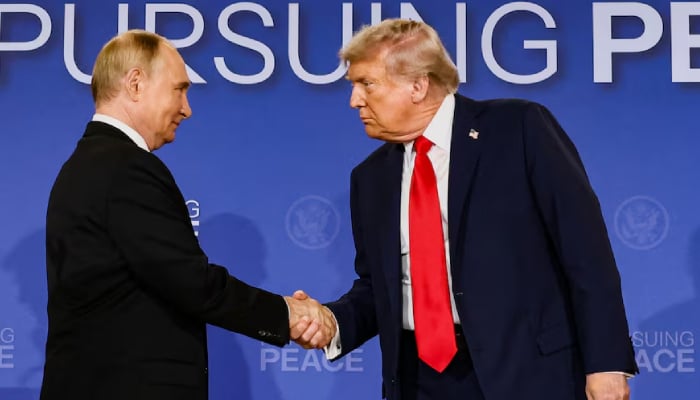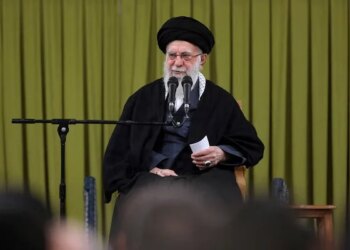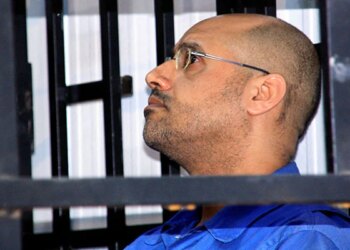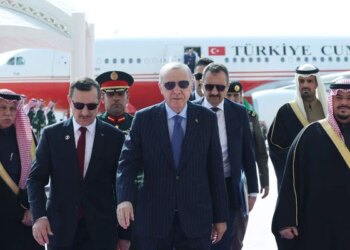Select Language:
- Trump intends to evaluate Putin’s moves over the next two weeks.
- Zelenskiy praises summit with Trump as a step toward peace.
- Russia launches its biggest attack this month amid ongoing peace negotiations.
On Tuesday, President Donald Trump expressed hope that Vladimir Putin would take steps to end the conflict in Ukraine but acknowledged that the Kremlin leader might be uninterested in negotiating, which could lead to a tense situation for Putin.
During an interview on Fox News’s “Fox & Friends,” Trump stated he believed Putin’s intentions would become clearer within the upcoming weeks. He reiterated his stance against deploying U.S. troops on Ukrainian territory and did not provide details about security assurances he previously indicated Washington might offer Kyiv after a potential peace agreement.
“Honestly, I don’t think reaching a peace agreement will be a problem. I believe Putin is weary of this conflict. Everyone seems fatigued, but you never know,” Trump said.
“In the next couple of weeks, we’ll find out what President Putin’s true intentions are… It’s possible he doesn’t want to finalize a deal,” added Trump, who has threatened further sanctions on Russia and countries purchasing its oil if peace efforts falter.
Ukraine and its European partners were encouraged by Trump’s pledge to provide security guarantees during an extraordinary summit on Monday, viewed as a step toward ending Europe’s deadliest conflict in eight decades. However, many uncertainties remain, including Russia’s willingness to cooperate.
Ukrainian President Volodymyr Zelenskiy called the White House discussions a “significant step forward” in ending the crisis, which has led to the deaths and injuries of over a million people since Russia’s full-scale invasion in February 2022. Zelenskiy anticipates a trilateral meeting with Putin and Trump in the coming weeks.
At the summit, Zelenskiy was surrounded by leaders from Germany, France, and Britain. His cordial interaction with Trump marked a stark contrast to their challenging Oval Office meeting earlier this year.
Despite these developments, prospects for peace remain uncertain, and Zelenskiy may have to make difficult compromises to bring the conflict to an end, which has caused extensive devastation across Ukraine.
Russian Strikes
While diplomatic talks in Washington provided a brief sense of relief for Kyiv, hostilities continued unabated. Russia launched an attack involving 270 drones and 10 missiles overnight—its most extensive assault this month, according to Ukraine’s air force. The strikes targeted energy infrastructure in the Poltava region, notably affecting Ukraine’s sole oil refinery and igniting large fires.
In related developments, Russia returned the bodies of 1,000 fallen Ukrainian soldiers, while Ukrainian officials reported receiving 19 bodies of Russian soldiers in exchange, as per TASS news agency.
“The positive takeaway from Monday’s summit is that there was no escalation,” said John Foreman, a former British defense attaché to Kyiv and Moscow. “Trump didn’t demand Ukraine’s capitulation or suspend support. The atmosphere was constructive, and the trans-Atlantic alliance endures.” However, he also pointed out that future security guarantees are still undefined, and their specifics remain unclear.
Meanwhile, Ukraine’s allies convened in the “Coalition of the Willing” format to discuss additional sanctions aimed at pressuring Russia further. Planning teams are set to meet with U.S. counterparts shortly to outline security assurance frameworks for Ukraine.
NATO military leaders are also expected to meet soon, with U.S. General Dan Caine expected to join virtually, to discuss Ukraine’s situation.
President Zelenskiy shared on social media (X) that efforts are underway with coalition members to develop concrete security arrangements.
Russia’s Stance on Negotiations
Russia has not committed to a summit between Putin and Zelenskiy but has indicated openness to discussions. Foreign Minister Sergei Lavrov stated that Moscow is willing to consider various diplomatic formats, emphasizing that any high-level talks must be meticulously prepared.
Putin remains firm on opposing NATO troops in Ukraine and has shown no signs of easing territorial demands, including land areas beyond Russia’s current control, following his recent summit with Trump in Alaska.
According to Neil Melvin from the Royal United Services Institute, Russia might prolong the war while attempting to deflect U.S. pressure through extended peace negotiations.
He explained, “Behind the scenes, there’s a tug-of-war between Ukraine and Europe on one side and Russia on the other—none want to appear as the obstacle blocking Trump’s peace efforts.” He noted that Western countries are cautiously navigating around Trump, wary of blaming each other for delays, especially given the vagueness of Trump’s security proposals.






